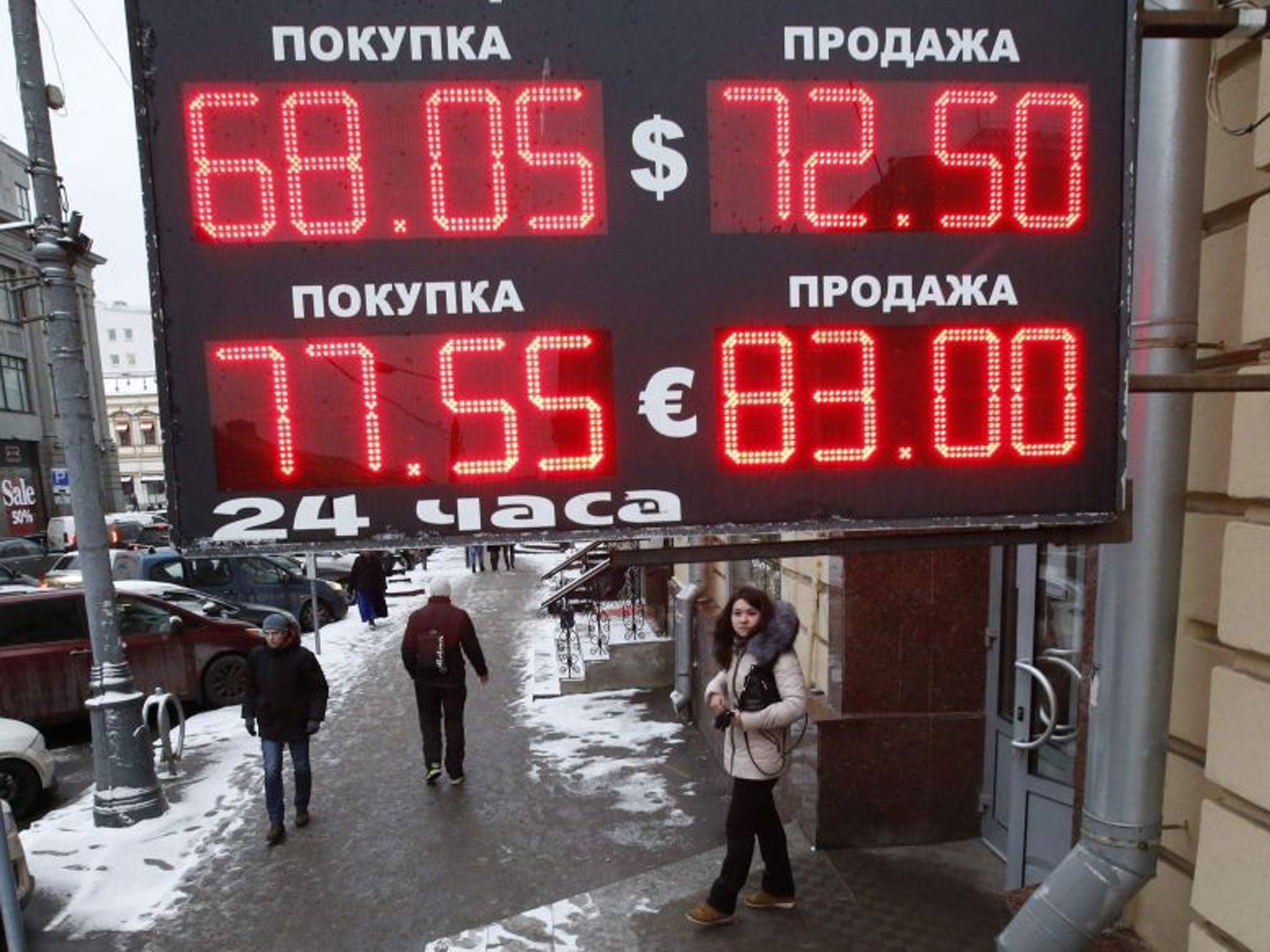Russia cuts its key interest rate to 15% amid recession fears
Analysts said the move was likely due to pressure by government officials and Russian businesses

Russia has cut its key interest rate to 15 per cent – in a surprise move that comes as sliding oil prices and Western sanctions over the Ukraine crisis fuel fears of a recession in the country.
Last month the Russian central bank raised the interest rate to 17 per cent to support the collapsing rouble, in order to help the fading economy.
Analysts had expected that rate to remain unchanged and the rouble fell by more than 2 per cent against the dollar following the announcement.
The central bank explained its decision to cut the rate by saying that the risks of an economic slowdown are now higher than the risks associated with the rouble's drop. The currency's 50 per cent drop since the summer has caused a spike in inflation.
In an emailed statement, the bank's press service quoted her as saying the rate remained high enough to allow the Bank of Russia to reach its inflation target in the medium term.
The central bank said it expected inflation, currently at an annual 13 per cent, to peak in the middle of the year and fall below 10 per cent next year as the economy adjusts to the weaker rouble.
Higher interest rates can help a currency but also hurt economic growth by making loans more expensive.
Analysts said Friday's move was likely due to pressure by government officials and Russian businesses, which are suffering from the high rates.
Earlier this month the bank's head of monetary policy, Ksenia Yudayeva, an anti-inflation hawk, was replaced by Dmitry Tulin, a central bank veteran seen as more acceptable to bankers, who have been called for lower interest rates.
But the shift in policy may also reflect the realisation that Russia's economy is heading for a hard landing as low oil prices look set to persist and the conflict in Ukraine has worsened, defying hopes of an early end to Western sanctions.
Macroeconomic data released earlier this week showed real wages slumping by 4.7 per cent year-on-year in December and real disposable income slumping by 7.3 per cent, boding ill for economic growth in the months ahead.
In an accompanying statement, the bank said it expected gross domestic product to fall by 3.2 per cent in annual terms during the first half of 2015, following growth of 0.6 per cent in 2014.
Additional reporting by agencies
Subscribe to Independent Premium to bookmark this article
Want to bookmark your favourite articles and stories to read or reference later? Start your Independent Premium subscription today.

Join our commenting forum
Join thought-provoking conversations, follow other Independent readers and see their replies